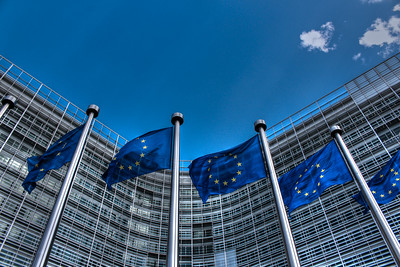On Thursday, 29 April 2021, the same day that it passed a monumental resolution focusing on the negative human rights implications of Pakistan’s controversial blasphemy laws, the European Union introduced another resolution recommending consideration of human rights during the expansion of the EU-India strategic partnership. The draft resolution is not exclusively focused on the issue of human rights, however, and does highlight other issues such as nuclear non-proliferation, international health emergencies and COVID-19, sustainable development and climate diplomacy, cybersecurity and terrorism, and more, making it all-encompassing and integrative. Please find below a summary of the most salient points relevant to India’s human rights and religious freedom conditions:

- Foreign and security policy cooperation
- The EU will strive to promote nuclear non-proliferation and tight control of chemical weapons and weapons of mass destruction; accordingly, the EU will cooperate with India to promote regional peacebuilding and tackle issues such as terrorism, threats to cybersecurity, and violent extremism.
- The EU will coordinate with India to develop food security and disaster relief programs for all individuals, in compliance with both international humanitarian law and the principle of non-discrimination.
- The EU will promote tension de-escalation between India and Pakistan, and welcomes the 25 February 2021 India-Pakistan Joint Statement on Ceasefire
- The EU will support peaceful resolution of conflict and disputes on the India-China border, in compliance with international law.
- Promotion of the rule of law, human rights and good governance
- The EU will maintain human rights issues at the forefront of engagement with India, and will work with India to develop a comprehensive strategy to address a multitude of human rights issues concerning women, children, ethnic and religious minorities
- The EU remains concerned by the Citizenship Amendment Act (CAA) which preferentially offers non-Muslim migrants a fast track to naturalized citizenship, and which is therefore discriminatory against Muslims by nature
- The EU will call upon India to promote and protect the freedom of religion or belief per international conventions and domestic law; in this vein, the EU will encourage India to take action against speech that incites violence and intolerance towards religious minorities. Moreover, the EU recognizes the problematic application of state anti-conversion legislations which have been used to target in particular Indian Muslims and Christians.
- The EU will encourage India to accept visits by the United Nations Special Rapporteur on the promotion and protection of the right to freedom of opinion and expression, the UN Special Rapporteur on extrajudicial, summary or arbitrary executions, and the UN Special Rapporteur on the rights to freedom of assembly and association.
- The EU will urge India to meet its obligations as the world’s large democracy, by protecting constitutional rights and freedoms (opinion, expression, assembly, association, religion).

- Promotion of the rule of law, human rights and good governance (continued)
- The EU will urge India to prosecute acts of violence and discrimination against women and girls and provide assistance to the survivors.
- The EU will urge India to ratify the UN Convention against Torture and the UN Convention on the Protection of All Persons from Enforced Disappearance.
- Resilience through sectoral partnerships
- The EU will establish a connectivity partnership with India and provide “loans and guarantees for sustainable investment in bi- and multilateral digital and green infrastructure projects in India”
- The EU will ensure that these development initiatives will consider human rights as a main determinant:

Cover image by Thijs ter Haar on Flickr (CC BY 2.0)

